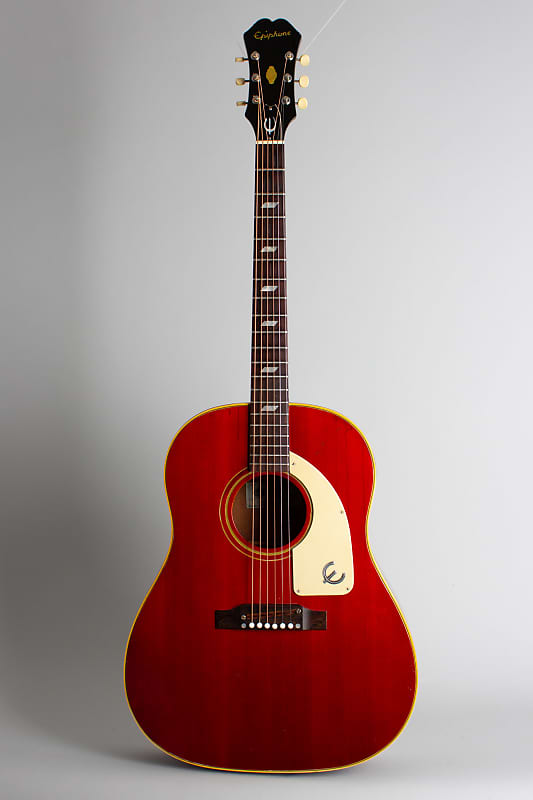

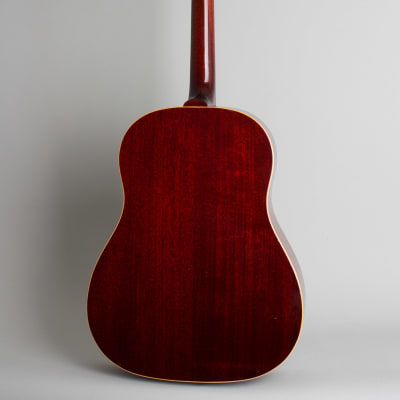
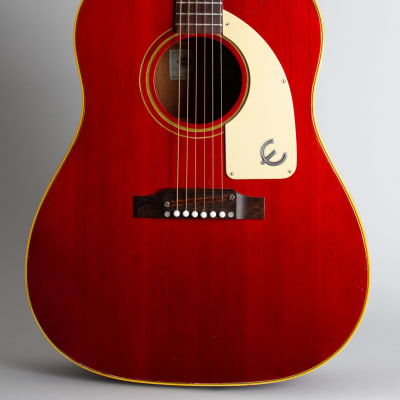
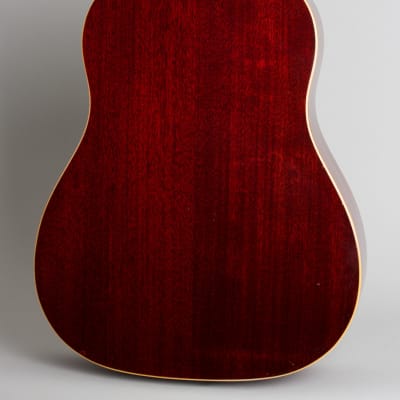
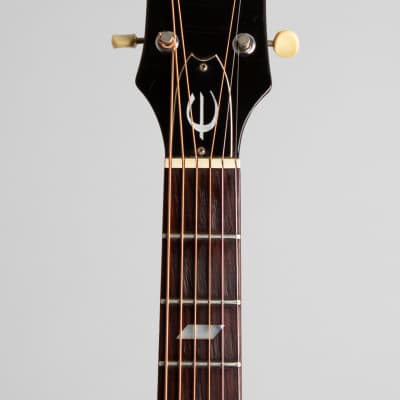
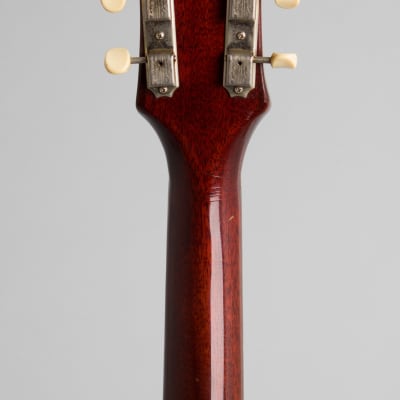
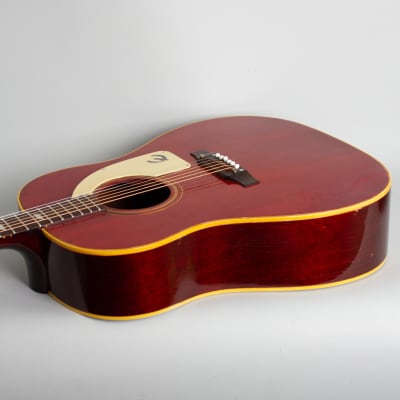
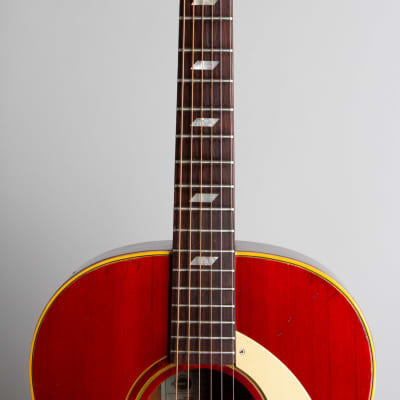
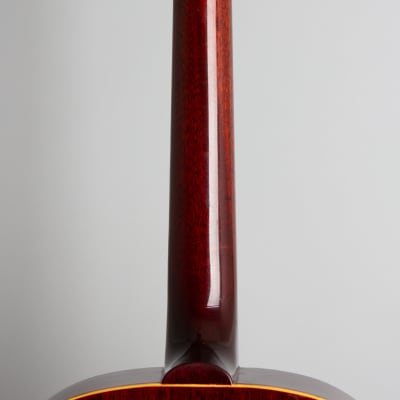
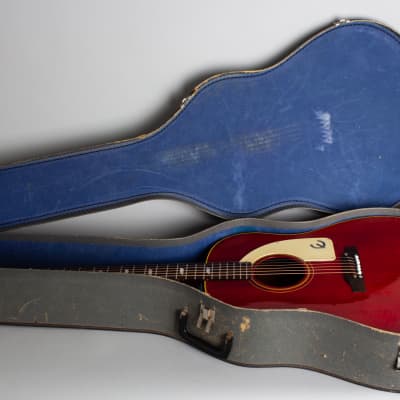
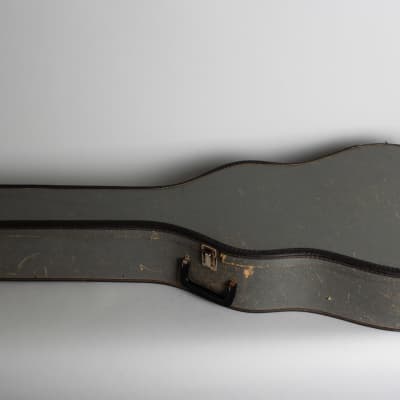
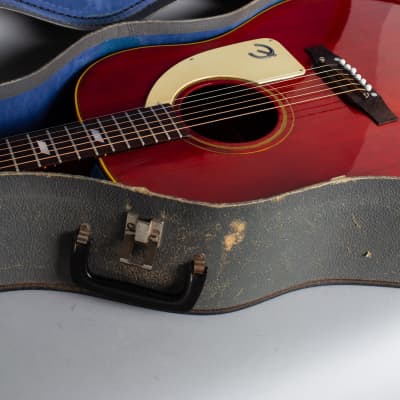
Epiphone FT-79NT Texan Model Flat Top Acoustic Guitar (1970), made in Kalamazoo, Michigan, serial # 901387, cherry top, natural mahogany back and sides finish, mahogany back, sides and neck; spruce top, rosewood fingerboard, original grey chipboard case. The "Guitar of Yesterday" the Epiphone Texan will forever be remembered as Paul McCartney's 1960's instrument of choice for writing, recording and performing that particular tune, and many others besides. The FT-79 Texan is the 1960's Epi-logo version of the Gibson J-50 but with a longer 25 1/4" scale, which gives it a tighter, more powerful sound. The Texan was produced through the 1960's and was a fairly popular guitar, one of the Gibson-made Epiphone line's success stories. This particular example has a serial number dating to 1970 marking it as one of the very last produced in Kalamazoo before the Epiphone brand was down-shifted to exclusively Japanese-made product. This Texan has a number of differences from the classic "Beatle' model, most notably the deep cherry red finish on the top rather than the standard sunburst or natural. This is quite a rare option and makes for a most distinctive looking flat top for sure. It also has a very thin neck at the nut (common on late '60's Kalamazoo production) and a screwed-on white plastic pickguard. The Epiphone name is inlaid in pearl on the headstock, the fingerboard has pearl trapezoid block fingerboard inlay and the rosewood bridge is equipped with an adjustable wooden saddle. This is a surprisingly good sounding guitar for this period; many Gibson flat top guitars from the end of the 1960's are disappointing compared to their brethren from earlier in the decade but this one has good volume and a very pleasing tone. The very slim neck is quite comfortable (for players who like narrow nuts anyway) and the guitar handles and plays very well. This Texan is a cool and unusual looking variation on this classic model, one of the last of the original Kalamazoo/Epiphone breed.Overall length is 42 1/4 in. (107.3 cm.), 16 1/8 in. (41 cm.) wide at lower bout, and 4 7/8 in. (12.4 cm.) in depth at side, taken at the end block. Scale length is 25 1/4 in. (641 mm.). Width of nut is 1 1/2 in. (38 mm.). This guitar appears not too heavily played over the last 50+ years, showing mostly just some handling wear including finish checking with small dings, dents and scrapes. There is one notable repair to the top in the armwear area where it looks like the spruce was pushed in along several crack lines. This has been very neatly repaired with just some topical overfinish and is not conspicuous at all, just noticeable on close inspection. This repair does not cause any structural or sonic issues and it looks like a small accident was expertly patched decades ago. The guitar retains all original hardware and other than this one repaired spot noted above the finish is undisturbed. The instrument shows no alterations or other repairs. It has never had or needed a neck reset or bridge reglue and is an excellent player with a sweet and pleasing sound. The original grey Epiphone chipboard case is included, a bit worn but still fully functional. Overall Excellent - Condition.
Reverb Buyer Protection
Reverb has your back if your item is lost, damaged, or doesn't match its description. Simply report any issues within 7 days and we'll help you get a full refund.Learn more about Reverb Buyer Protection.
| Listed | 2 years ago |
| Condition | Excellent (Used) Excellent items are almost entirely free from blemishes and other visual defects and have been played or used with the utmost care.Learn more |
| Brand | |
| Model |
|
| Finish |
|
| Year |
|
| Made In |
|
